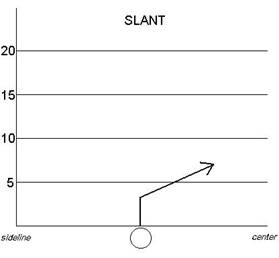1. Don’t Correct Every Mistake
You don’t need to correct them every time they make a mistake…let them realize that they are doing it wrong once (maybe twice) and seek you out for guidance. However, under no circumstances should you allow your teens to fail publicly. Don’t let their mistakes result in humiliation in front of their peers. They’ll resent you.
2. Whisper Criticism – Yell Praise
Pull your players aside when you correct their mistakes. Adolescents can easily misinterpret public criticism as a condemnation of their abilities. Even if you have the most sincere intentions, like adjusting minor details, adolescents can take it personally. Verbally “dressing down” a player will usually result in deep resentment, especially if done in front of a peer group.
If many members of a group are making the same type of mistake, couch the criticism in terms of what “we” are not accomplishing. Do not to point out those people who are actually making the mistake when you correct it. (The kids will automatically try to place mental blame anyway while you’re talking.) Instead, say something inclusive, like, “OK, guys, we keep making this mistake, so let’s go over this again….”
Yelling praise is an excellent way to boost team morale and motivate an individual to repeat exceptional performance. “Great catch!” “Good job!” “Nice footwork!” – all of these are important to building confidence in the player. Be careful of singling out the same person too frequently, though. Playing favorites can disrupt team chemistry. Whatever you do, make sure you praise everyone at some point during the season.
3. Respect Your Players
You cannot let the players run the show, but you don’t need to lord over them either. Let them know you’re in charge, but solicit their opinions and listen to their concerns. Stay in charge but respect your players’ input. Not only is it helpful to get an “on the field” perspective, but your players also need to feel like you are empowering them.
4. Don’t Overuse the Pep Talk
Teens have a finite number of times when they can be intimidated, encouraged, or pushed to do anything. Whether it is a rah-rah type of speech or a good old fashioned chewing out, my magic number is somewhere around 2 for each event. That means if you bark at your entire team once, they’ll probably listen. Twice, they might listen again, but perhaps less so. More than twice and they will resent you for yelling at them – either because they don’t want to be treated like children or because they didn’t care that you yelled in the first place.
The same is true for pep talks. Once and you’re cheering them on. Twice and your cheering them on…again. More than twice and you are “that cheering guy who is probably going to cheer whether we suck or not.” While it is important to be positive, teens need order, structure, and discipline. Be realistic in your expectations on a team level. Every game can’t be the most important game we've ever played.
5. Challenge Your Players to Excel
Don’t underestimate your players’ potential, and don’t allow them to underestimate themselves. They will only grow, both as football players and as young adults, if they stretch themselves to do more than they ever thought they could.
You don’t need to correct them every time they make a mistake…let them realize that they are doing it wrong once (maybe twice) and seek you out for guidance. However, under no circumstances should you allow your teens to fail publicly. Don’t let their mistakes result in humiliation in front of their peers. They’ll resent you.
2. Whisper Criticism – Yell Praise
Pull your players aside when you correct their mistakes. Adolescents can easily misinterpret public criticism as a condemnation of their abilities. Even if you have the most sincere intentions, like adjusting minor details, adolescents can take it personally. Verbally “dressing down” a player will usually result in deep resentment, especially if done in front of a peer group.
If many members of a group are making the same type of mistake, couch the criticism in terms of what “we” are not accomplishing. Do not to point out those people who are actually making the mistake when you correct it. (The kids will automatically try to place mental blame anyway while you’re talking.) Instead, say something inclusive, like, “OK, guys, we keep making this mistake, so let’s go over this again….”
Yelling praise is an excellent way to boost team morale and motivate an individual to repeat exceptional performance. “Great catch!” “Good job!” “Nice footwork!” – all of these are important to building confidence in the player. Be careful of singling out the same person too frequently, though. Playing favorites can disrupt team chemistry. Whatever you do, make sure you praise everyone at some point during the season.
3. Respect Your Players
You cannot let the players run the show, but you don’t need to lord over them either. Let them know you’re in charge, but solicit their opinions and listen to their concerns. Stay in charge but respect your players’ input. Not only is it helpful to get an “on the field” perspective, but your players also need to feel like you are empowering them.
4. Don’t Overuse the Pep Talk
Teens have a finite number of times when they can be intimidated, encouraged, or pushed to do anything. Whether it is a rah-rah type of speech or a good old fashioned chewing out, my magic number is somewhere around 2 for each event. That means if you bark at your entire team once, they’ll probably listen. Twice, they might listen again, but perhaps less so. More than twice and they will resent you for yelling at them – either because they don’t want to be treated like children or because they didn’t care that you yelled in the first place.
The same is true for pep talks. Once and you’re cheering them on. Twice and your cheering them on…again. More than twice and you are “that cheering guy who is probably going to cheer whether we suck or not.” While it is important to be positive, teens need order, structure, and discipline. Be realistic in your expectations on a team level. Every game can’t be the most important game we've ever played.
5. Challenge Your Players to Excel
Don’t underestimate your players’ potential, and don’t allow them to underestimate themselves. They will only grow, both as football players and as young adults, if they stretch themselves to do more than they ever thought they could.



 RSS Feed
RSS Feed